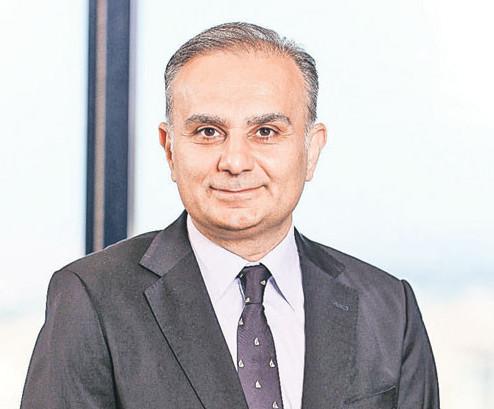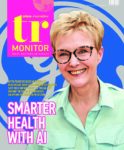Sabanci Holding’s Industry Group’s profit has exceeded its turnover. The holding’s three industry subsidiaries, Kordsa, Brisa and Temsa recorded a turnover of TRY 12bn in 2020, despite the pandemic. As the Industry Group entered 2021, Kordsa doubled its operating profit and Brisa increased it by 2.4-fold in the first quarter of the year. “Sectors in the fields in which we operate have suffered during the pandemic while we’ve increased our market share,” said Cevdet Alemdar, Industry Group President of Sabanci Holding.
Exports and international revenues generated half of the turnover recorded by Sabanci Holding Industry Group in 2020. Kordsa and Brisa increased their net combined profit by 45% in this period. Kordsa raised its sales revenues by 26% in TRY terms in Q1 and doubled its real operating profit. Brisa, meanwhile, increased its sales revenues by 47% in TRY terms and raised its real operating profit by 2.4-fold. The capital of Temsa rose by TRY 300m and the company sold electric buses to Sweden and Prague.
The Industry Group, which leaped forward with investments in the last six years, invested USD 300m in Brisa’s Aksaray facility, USD 140m in Kordsa’s Indonesia and Turkey facilities and USD 310m in the U.S. for Kordsa’s composite business line.
NEW BLOOD TO KORDSA WITH EV AND SPORTS
China is the main rival of Kordsa, according to Cevdet Alemdar. “I’ve struggled against prices there for years. Kordsa has reached the largest market share during the pandemic. This situation is similar in our 12 facilities across the world,” said Alemdar. Tire reinforcement in the automotive sector generates 85% of Kordsa’s business volume while the remainder consists of the aerospace and aviation industry. More than 90% of the company’s sales revenues are earned from abroad, while 85% of business volume in the automotive industry is carried out at six facilities, including two in the U.S. and production plants in Indonesia, Thailand, Brazil and Turkey.
“The fluctuation in the automotive sector was very strong although it wasn’t as strong as our 15% business volume in the aerospace and aviation industry, which Kordsa has always been known for,” said Alemdar. USD 600m of the company’s business is created by automotive tire production. Kordsa has three facilities in the U.S. and a Composite Technologies Center of Excellence in Turkey for the aerospace and aviation industry. “The demand in this field declined sharply by 40%. But we quickly directed the composite industry out of the aviation sector in this period. Electric vehicles (EV) and sports were the two fields in which we achieved great success in this respect,” said the Sabanci Holding Industry Group President.
“EVs heat up quickly, and EV batteries are produced from aluminum casting. We offer composite products. Thus, we make EVs lighter and ensure their heat insulation,” he added. Kordsa has offered these products to the UK and the U.S. markets while bicycles for a global sports equipment retail chain were manufactured from the company’s composite material. “Aerospace and aviation are still the apple of our eye and we launched new products in this period. But we compensated the sector’s fall with the automotive and sports fields,” Alemdar noted.
BRISA’S OTOPRATIK AND PROPRATIK EYE FLEETS
In addition to being a tire company, Brisa has transformed into a firm offering travel solutions, according to Cevdet Alemdar. Brisa provides not only tires to vehicles but also offers all needs of vehicles with its two store chains OtoPratik and ProPratik. “We produce body shell arrangements, motor oils, wipers, headlights, accumulators. We have an approach to take the vehicle and resolve its problems. Thus, our customers won’t need to bring their vehicles to us,” said Alemdar. Brisa restructured this business and transformed to the franchise system towards the end of 2019. The number of Brisa points in Turkey increased from 40 to 90 in this period despite the pandemic.”
The company also renewed its Information Technologies (IT) system. “We made it possible to complete all business processes on the internet so that we can physically go to customers,” Alemdar noted. Brisa launched products such as OtoPratik branded filters and accumulators during this transformation while fleets are the most important customers of the company. “A rental fleet owner has vehicles in many places in Turkey. He wants to get service at the same quality and be invoiced from a single place. OtoPratik solves this,” he added.
BRISA HAS 20% MARKET SHARE ALONE IN EGYPT
Products exported by Brisa rose from 35% to over 50% on a unit basis. “The Aksaray facility has accelerated exports during the pandemic,” said the Sabanci Holding Industry Group President. The European market is important for the company while it has a considerable market share in the UK, Italy and Austria. “North Africa, i.e. Egypt and Tunisia, are advanced markets,” said Alemdar stressing that their market share in Egypt has exceeded 20%. Brisa sends its products to ‘every corner of the globe’. “We export tire to China. We are preferred in that market with our Lassa brand and technical specifications. We have existence in Singapore, Finland and Australia. We export in line with different climate conditions, different standards,” Alemdar added. Brisa has become the original equipment supplier for vehicle manufacturers with its Lassa and Bridgestone brands. The company manufactures its products at its Aksaray facility.
CAPITAL INCREASE IN TEMSA
Alemdar defines the reacquisition process of Temsa as ‘crossing a transformation bridge’. “A value such as Temsa in Turkey was claimed both by us as Sabanci and Turkish banks. Moreover, we brought Skoda’s owner PPF Group to Turkey as a foreign partner during the pandemic,” said the Sabanci Holding Industry Group President. “The first challenge was to save the company from bankruptcy, and we achieved this in a month,” Cevdet Alemdar noted.
Temsa produced Turkey’s first electric bus in 2015. “We exported buses to Sweden after we overcame this challenging period. We rapidly offered them the standards they requested,” Alemdar added. Temsa’s foreign partner, Skoda, exported 14 buses to Prague through the company, with each bus costing USD 450,000-500,000. “Moreover, we managed to convince our foreign partner and increased our capital to TRY 300m. Namely we brought money to the country twice, by both capital increases and partnerships,” said Alemdar.
One pandemic, three important steps
(1) FLEXIBILITY
“The pandemic has revealed that Volatility, Uncertainty, Complexity and Ambiguity (VUCA) isn’t a joke. There were those who said that ‘this is a tsunami’ and those who said that this is a fluctuation in VUCA, and they can manage it. In my opinion, this was a severe storm. The strategy analogy I use in companies is that they don’t have strategy castles made of constant and concrete bricks. The best analogy to show companies’ strategies is the sail boat. It tries to travel from place to place but a team travels in a stormy sea… Or you can call it a plane. It’s impossible to consider it independently of environmental conditions. It’s not possible to say that ‘our strategy has been written in stone; that it doesn’t change’. The pandemic has taught us this.”
(2) QUICK ADAPTATION
“Our companies operate in Turkey’s large developing economy. That’s why we’ve experienced this wave such as others. Our muscles were ready for this. The proof has been our quick adaptation… Although the lockdown started on March 11, everyone moved from offices to homes on March 4-5. We already started to work remotely in Brisa and Kordsa. We started the 360-degree office implementation before the pandemic. We learned how to use our own systems, Teams and Zoom applications. Microsoft Global filmed us to show as an example to the world. We were ready for the pandemic but not its size. We also prepared our dealers to work remotely. We announced psychological counseling for them in March. There were those who connected remotely to receive consultancy for their spouses and children. And they were very happy as we thought about this before they demanded it. Moreover, we also said under the leadership of our CEO, Cenk Alper, that ‘we won’t part ways with any colleagues, and we’ll be together’. We have left no colleague behind. We see it from job applications. People started to say that ‘although Sabanci Holding is solid and traditional, it’s also innovative’”.
(3) ACCURATE PROJECTIONS
The fundamental point in manufacturing hit by the pandemic was the fluctuation in supply chain caused by uncertainty in demand. For instance, production of vehicles was interrupted due to the chip crisis. But, as the Industry Group, we delivered all orders we promised even during these difficult times. This agility was achieved with more accurate data collection with digitalization. Our holding works in all sectors with Sabanci University. A statistics professor, data analyst from SabanciDx, and each subsidiary’s own analyst take part in the working group. We carry out analyses on a sectoral basis and predict how that sector will fluctuate. We started this work prior to the pandemic. Our colleagues made promises in line with these projections when they met with dealers and customers. For instance, Brisa dealers can monitor their orders, whether they are in production, warehouse, delivery process as they monitor cargo. This is a major operation in manufacturing. We arrange raw material and buy rubber in accordance with this. We conduct the monthly Future Index for 600 dealers with an independent institution. Brisa has 25% of these dealers. By the support of the index, we learn our network’s place and speed compared to others and we know how dealers see their future. As a holding, we don’t make an annual budget, we continuously prepare 12-year, 12-month projections. We do this four times in a year at the holding level, and twice in a month at the subsidiary level, i.e., we do it 24 times a year.










